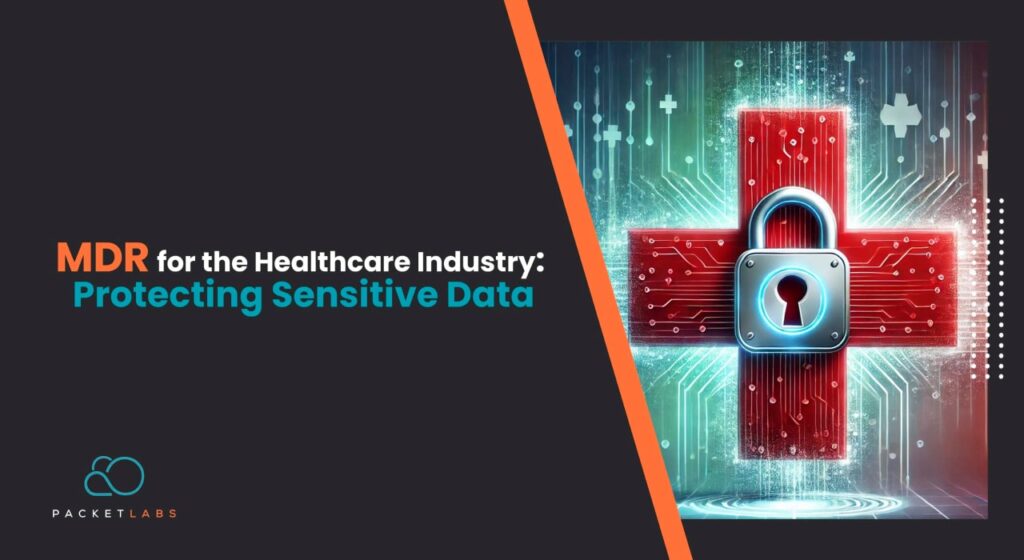
The healthcare industry thrives on a foundation of sensitive data. Electronic Health Records (EHRs) hold a wealth of personal information, detailing a patient’s medical history, diagnoses, medications, and even genetic data. This trove of information makes healthcare a prime target for cybercriminals. In 2022 alone, the healthcare sector experienced the highest average cost of a data breach globally, reaching a staggering USD $10.1 million per incident according to IBM Security’s Cost of a Data Breach Report. This alarming statistic underscores the vulnerability of healthcare organizations and the devastating financial consequences of cyberattacks.
Fortunately, healthcare institutions don’t have to navigate this perilous landscape alone. Managed Detection and Response (MDR) offers a proactive approach to cybersecurity, safeguarding sensitive patient data and mitigating the risks associated with cyber threats. MDR services leverage advanced security expertise and continuous monitoring to identify and respond to cyberattacks in real-time. By employing MDR, healthcare organizations can significantly improve their threat detection rates, minimise the impact of security incidents, and ultimately, protect the privacy and well-being of their patients.
This article delves into the world of MDR for the healthcare industry. We’ll explore the specific vulnerabilities healthcare organizations face, unpack the core functionalities of MDR solutions, and detail the tailored benefits they offer for protecting sensitive patient data. Additionally, we’ll provide a roadmap for selecting and implementing an MDR solution to fortify your organization’s cybersecurity posture.
The Healthcare Industry: A Bullseye for Cyberattacks
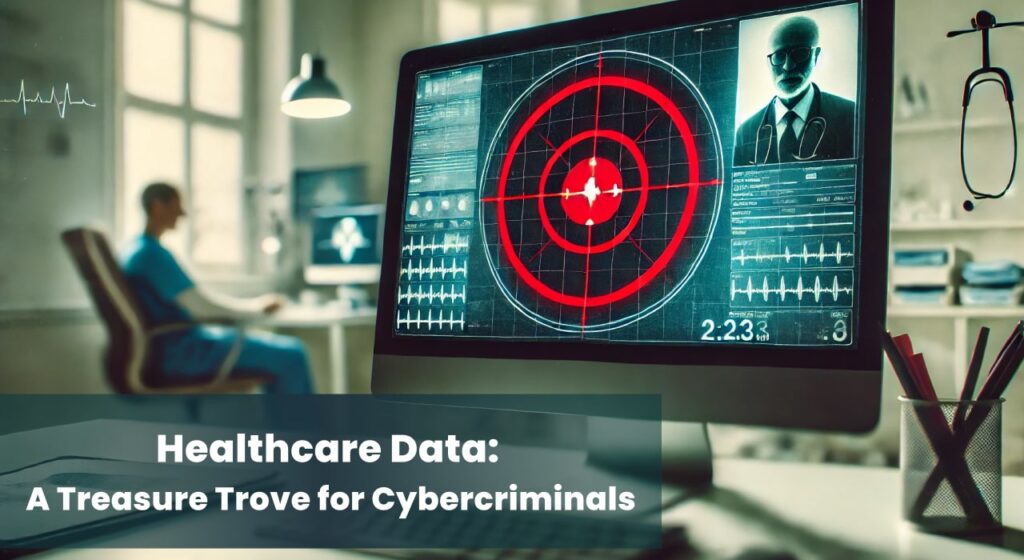
The very essence of healthcare data makes it a goldmine for cybercriminals. Electronic Health Records (EHRs) house a treasure trove of personally identifiable information (PII) like names, dates of birth, and Social Security numbers, alongside highly sensitive medical details. Financial information, such as credit card details and insurance data, further sweetens the pot.
A data breach in the healthcare sector can have devastating consequences for both patients and providers. Exposed medical records can lead to identity theft, discrimination based on pre-existing conditions, and even extortion attempts. Healthcare providers face hefty fines for non-compliance with data privacy regulations, reputational damage, and the significant costs associated with notifying patients and remediating the breach.
Cybercriminals employ a diverse arsenal to infiltrate healthcare systems. Ransomware attacks, where hackers encrypt critical data and demand a ransom for decryption, have become a growing threat. Phishing emails, meticulously crafted to appear legitimate, can trick staff into clicking malicious links or divulging sensitive information. Malware, disguised as legitimate software, can infiltrate systems and steal data or disrupt operations.
Maintaining robust cybersecurity is a constant struggle for healthcare organizations. Staffing shortages often leave IT teams stretched thin, making it difficult to keep pace with the ever-evolving threat landscape. Complex IT infrastructure, encompassing a mix of legacy systems and modern technologies, creates additional vulnerabilities. Budget constraints further limit the resources available for investing in advanced security solutions and training programs.
Managed Detection and Response: A Proactive Shield
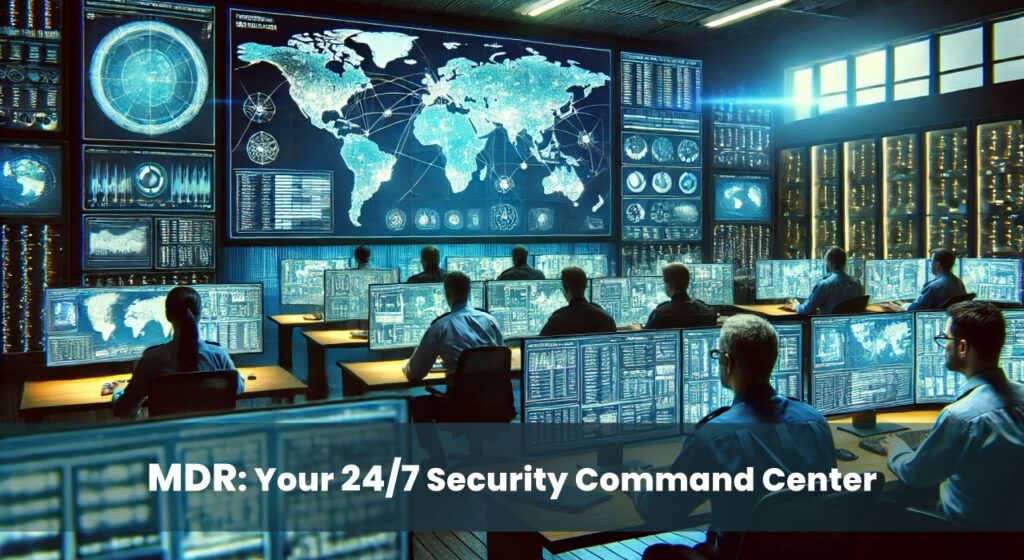
Managed Detection and Response (MDR) goes beyond traditional reactive security measures. It operates as a 24/7 security command center, vigilantly monitoring an organization’s IT infrastructure for signs of suspicious activity. This includes continuous threat detection, investigation of potential security breaches, and rapid incident response to neutralize cyberattacks before they escalate.
Unlike traditional security solutions that rely on signature-based detection, MDR services leverage advanced analytics and threat intelligence to identify even the most sophisticated cyber threats. MDR providers employ a team of security experts with extensive experience in recognizing and mitigating cyberattacks. This expertise allows them to not only react to immediate threats but also proactively hunt for vulnerabilities and identify potential attack vectors before they are exploited.
Unlike traditional security solutions that rely on signature-based detection, MDR services leverage advanced analytics and threat intelligence to identify even the most sophisticated cyber threats. MDR providers employ a team of security experts with extensive experience in recognizing and mitigating cyberattacks. This expertise allows them to not only react to immediate threats but also proactively hunt for vulnerabilities and identify potential attack vectors before they are exploited.
By outsourcing these critical security functions to MDR specialists, organizations can experience a multitude of benefits. Improved threat detection rates and faster response times minimize the potential damage from cyberattacks. Additionally, internal security teams are freed from the constant demands of network monitoring, allowing them to focus on strategic security initiatives and user awareness programs.
MDR for Healthcare: A Customized Shield
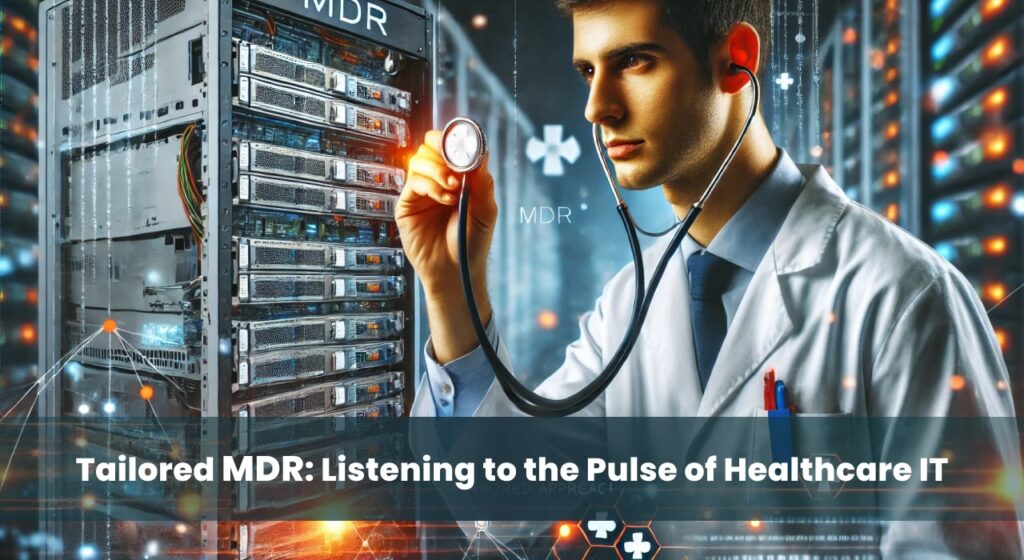
MDR services for the healthcare industry extend far beyond generic cybersecurity solutions. They are specifically designed to address the unique vulnerabilities and regulatory landscape of healthcare organizations. MDR providers possess a deep understanding of healthcare regulations, such as the Health Insurance Portability and Accountability Act (HIPAA) in the US and the General Data Protection Regulation (GDPR) in the EU. This expertise ensures that their security protocols align with compliance requirements, minimizing the risk of hefty fines and reputational damage.
Furthermore, MDR providers for healthcare have a keen understanding of the complexities of healthcare IT infrastructure. They can effectively monitor not only traditional IT systems but also specialized medical devices and Electronic Health Record (EHR) platforms. This comprehensive monitoring capability allows for the detection of threats that might otherwise slip through the cracks of a generic security solution.
An MDR solution tailored for healthcare organizations offers a comprehensive suite of features to safeguard sensitive patient data. Advanced threat detection and analytics are specifically designed to identify suspicious activity within healthcare data formats, including medical records and financial information. MDR providers continuously monitor the healthcare threat landscape, leveraging industry-wide knowledge to identify emerging attack vectors. This threat intelligence allows them to proactively adapt their detection methods and ensure they remain effective against the latest cyber threats.
Compliance monitoring and reporting are crucial features of an MDR solution for healthcare. MDR providers can generate reports that demonstrate an organization’s adherence to data privacy regulations, simplifying the auditing process. Additionally, incident response plans are customized to address healthcare-specific scenarios, such as ransomware attacks targeting medical devices or data breaches involving patient records. These pre-defined response strategies ensure a swift and coordinated effort to mitigate the damage and restore normal operations.
Finally, a key feature of an MDR solution for healthcare is seamless integration with existing IT infrastructure. This eliminates the need for disruptive and costly system overhauls, allowing healthcare organizations to leverage their existing technology investments while bolstering their cybersecurity posture.
The MDR Service Delivery Model: A Collaborative Approach
The MDR service delivery model fosters a collaborative effort between the healthcare organization’s IT team and the MDR provider’s Security Operations Center (SOC) analysts. The SOC acts as an extension of the internal IT team, providing continuous monitoring and advanced threat detection capabilities. SOC analysts leverage sophisticated security tools and threat intelligence feeds to identify and investigate suspicious activity across the healthcare organization’s IT infrastructure.
The MDR service delivery unfolds in distinct stages. The first stage involves continuous security monitoring and threat detection. SOC analysts meticulously analyze network traffic, system logs, and endpoint activity for signs of potential intrusions or anomalous behavior. Upon detecting a suspicious event, an alert is generated and forwarded to the SOC analysts for investigation.
The investigation stage involves a deep dive into the nature of the alert. SOC analysts utilize forensics tools and threat intelligence to determine the severity and potential impact of the suspected threat. If the investigation confirms a malicious attack, the incident response stage is initiated.
During incident response, the MDR provider activates a pre-defined plan tailored to the specific threat identified. This plan may involve isolating infected systems, containing the damage, and deploying remediation strategies to eradicate the threat and restore normal operations. Throughout this process, close collaboration with the healthcare organization’s IT team ensures a coordinated and effective response.
Finally, the MDR service delivery model emphasizes ongoing threat intelligence and reporting. SOC analysts continuously monitor the evolving threat landscape and update their detection methods accordingly. They also generate regular reports for the healthcare organization, detailing identified threats, incident response actions taken, and overall security posture. This ongoing communication empowers healthcare organizations to stay informed and adapt their security strategies to address the latest cyber threats.
Benefits of MDR for Healthcare Organizations
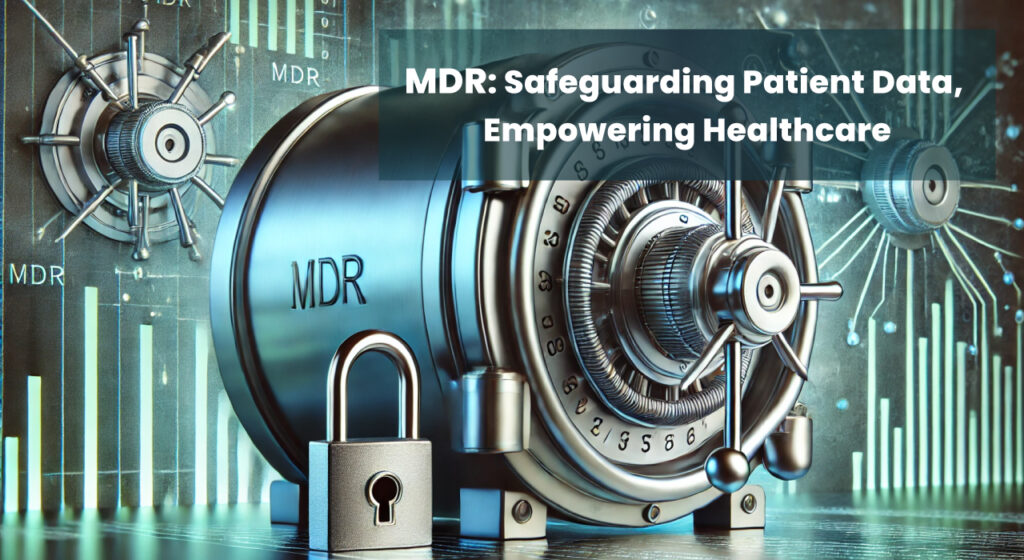
By implementing an MDR solution, healthcare organizations gain a robust shield against the ever-present threat of cyberattacks. The comprehensive security monitoring and advanced threat detection capabilities offered by MDR significantly enhance the protection of sensitive patient data. MDR providers stay ahead of the curve by continuously monitoring the healthcare threat landscape and adapting their detection methods to identify even the most novel cyber threats. This proactive approach minimizes the risk of data breaches and safeguards the privacy of patients.
MDR also empowers healthcare organizations to improve their detection and response times for cyber threats. The 24/7 vigilance of MDR SOC analysts ensures that suspicious activity is identified promptly, allowing for a swift and coordinated response. This rapid response minimizes the potential damage caused by cyberattacks, saving healthcare organizations valuable time and resources.
Furthermore, MDR alleviates the burden on often-stretched internal IT security teams. By outsourcing the critical tasks of security monitoring, threat detection, and incident response, MDR frees up valuable time for internal IT staff. This allows them to focus on strategic security initiatives, user education programs, and other value-added activities.
The compliance monitoring and reporting features of MDR solutions streamline the process of adhering to data privacy regulations. MDR providers ensure that security protocols align with regulations such as HIPAA and GDPR, minimizing the risk of hefty fines and reputational damage associated with non-compliance.
Perhaps the most significant benefit of MDR for healthcare organizations is the peace of mind it fosters. Patients can be confident that their sensitive medical information is protected by a robust security infrastructure. Similarly, healthcare providers gain peace of mind knowing they are equipped with the necessary tools and expertise to effectively combat cyber threats and safeguard patient data. This enhanced sense of security allows both patients and healthcare professionals to focus on what matters most delivering and receiving quality healthcare.
Optimizing Your MDR Investment
Having explored the undeniable benefits of MDR for healthcare organizations, navigating the various pricing models and associated costs becomes crucial for optimizing your investment. Our companion article, “The Cost and Pricing of MDR Services: What to Expect,” delves into the key factors influencing MDR service costs in Australia. It explores popular pricing models and offers valuable tips for negotiating the best value for your healthcare organization. By understanding the cost landscape, you can ensure you receive a tailored MDR solution that effectively safeguards your sensitive patient data without exceeding your budget.
Implementing MDR: Choosing the Right Shield
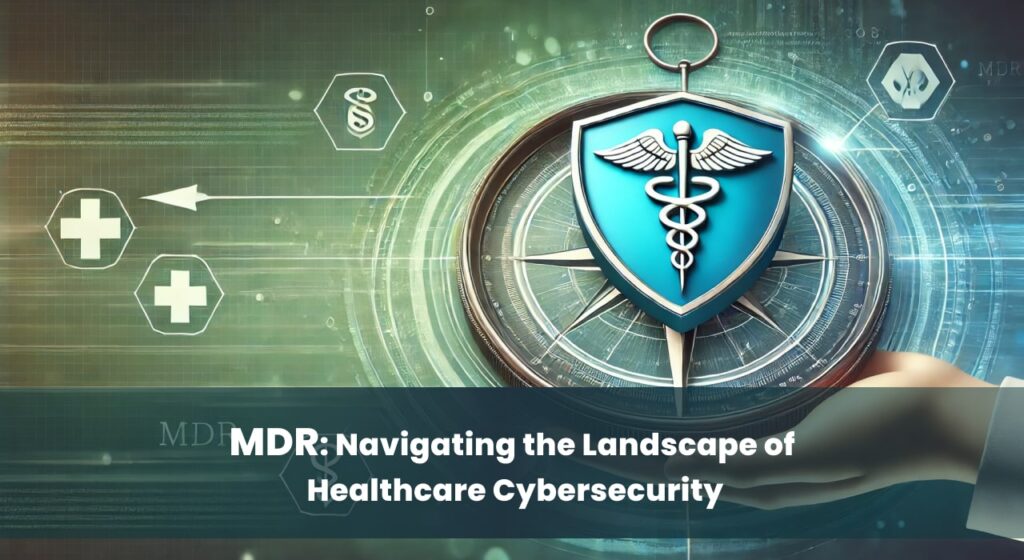
Selecting the most suitable MDR solution requires careful consideration by healthcare organizations. Here’s a checklist to guide your decision-making process:
Vendor Expertise in Healthcare Cybersecurity: Seek an MDR provider with a proven track record in the healthcare sector. Their understanding of healthcare regulations, data formats, and specific vulnerabilities is paramount for effective protection.
Capabilities Matching Specific Needs: Carefully assess the MDR solution’s features against your organization’s unique requirements. Does it offer advanced threat detection tailored for healthcare data? Does it integrate seamlessly with your existing IT infrastructure like EHR platforms and medical devices?
Integration with Existing IT Infrastructure: A smooth integration process is crucial. Opt for MDR services that can integrate with your existing technology stack without requiring disruptive and costly system overhauls.
Cost and Scalability of the MDR Service: MDR services come with varying cost structures. Consider factors like the size of your organization, data volume, and desired level of service when evaluating pricing models. Ensure the chosen service is scalable to accommodate future growth and evolving security needs.
Service Level Agreements (SLAs) and Reporting Options: A robust Service Level Agreement (SLA) should clearly define the provider’s response times, security guarantees, and communication protocols. Furthermore, explore the reporting options offered by the MDR service. Regular reports detailing identified threats, incident response actions, and overall security posture are vital for maintaining an informed and proactive security strategy.
In the digital age, healthcare data is a treasure trove for cybercriminals, making robust cybersecurity a non-negotiable priority for healthcare organizations. Managed Detection and Response (MDR) services emerge as a powerful shield, offering continuous monitoring, advanced threat detection, and rapid response capabilities specifically tailored to the healthcare sector. By implementing MDR, healthcare organizations gain a multitude of benefits, including enhanced data protection, improved regulatory compliance, and a significant reduction in the burden on internal IT security teams. Ultimately, MDR empowers healthcare organizations to focus on their core mission – delivering exceptional patient care – with the peace of mind that comes with knowing their sensitive data is well-protected.
